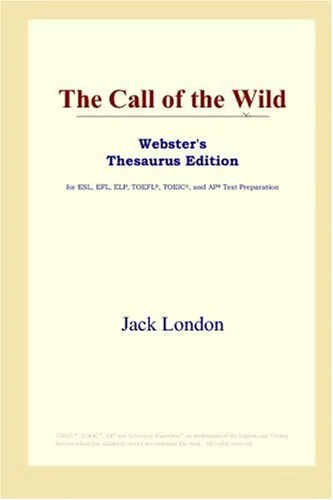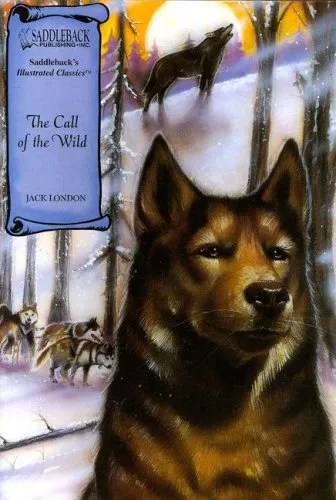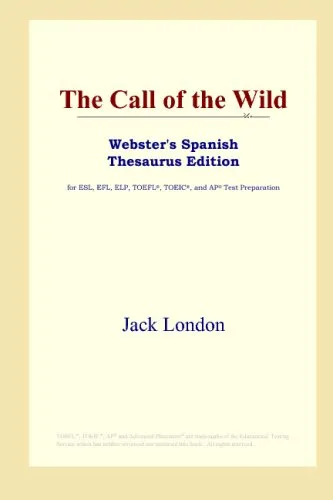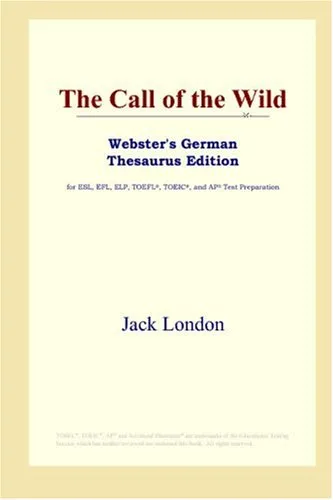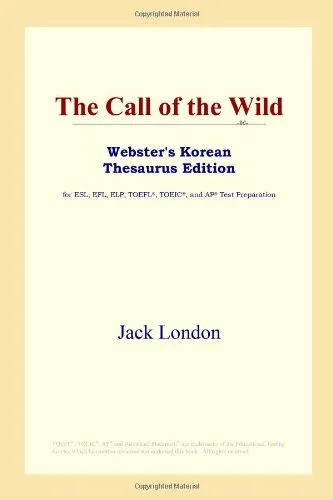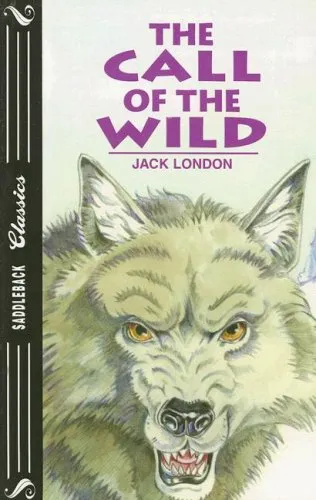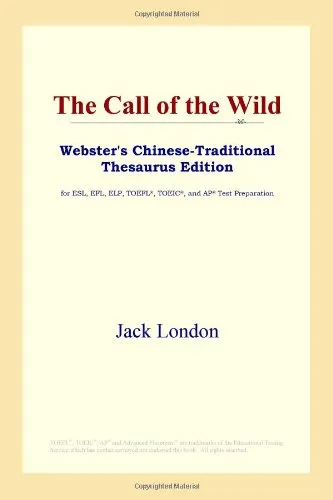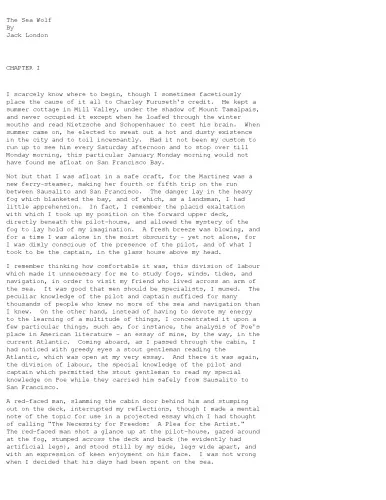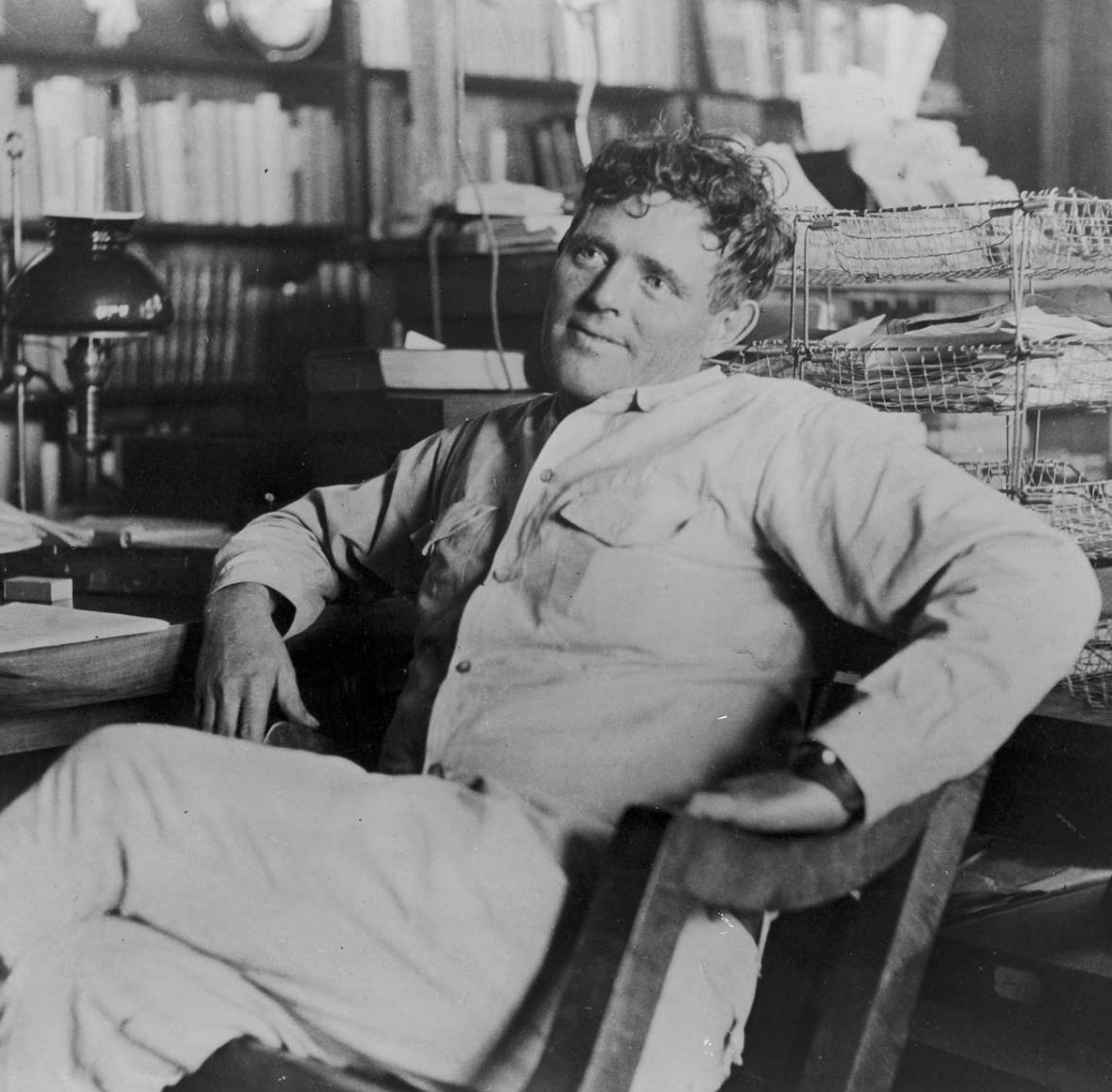The Call of the Wild (Webster's Thesaurus Edition)
4.0
Reviews from our users

You Can Ask your questions from this book's AI after Login
Each download or ask from book AI costs 2 points. To earn more free points, please visit the Points Guide Page and complete some valuable actions.Related Refrences:
Introduction to 'The Call of the Wild (Webster's Thesaurus Edition)'
Jack London's iconic novel, 'The Call of the Wild', explores themes of survival, nature, and transformation while delving into the life of its extraordinary protagonist, Buck, a St. Bernard-Scotch Collie dog. The Webster's Thesaurus Edition enriches this classic narrative by providing alternative vocabulary and enhancing the reading experience for language enthusiasts, making it both a timeless adventure and a linguistic exploration.
Detailed Summary of the Book
'The Call of the Wild' is set during the Klondike Gold Rush in the late 1890s. The narrative begins in the comfortable, civilized environs of Santa Clara Valley, California, where Buck, a domesticated pet, is kidnapped and sold to dog traders. Transported to the harsh, unforgiving climate of the Yukon, Buck experiences the brutal realities of sled team life.
Through a sequence of trials and challenges, Buck learns the laws of the wild, drawing from ancient instincts buried deep within his psyche. As he adapts to this ferocious world, he struggles between his innate domesticated traits and the emerging call of the wild. Buck's journey morphs from one of mere survival to a deeper, instinctual call, awakening his inner primal self.
The Webster's Thesaurus Edition accentuates the narrative with alternative words that help broaden the readers' understanding and engagement with the text. It offers synonyms and helps illuminate the rich language used by Jack London, allowing a deeper appreciation for his rugged, yet poetic prose.
Key Takeaways
- The power of nature: One of the central themes is the stark power of the natural world and its ability to transform those who live within it.
- Survival instincts: Buck's journey is a testament to the notion of survival of the fittest and the awakening of dormant instincts.
- Transformation: Buck's transformation from a pampered pet to a leader of the wild encapsulates the transformative power of experience and environment.
- Connection to one’s roots: The story underscores the deep connection all creatures have to their past and ancestral instincts.
Famous Quotes from the Book
“He was a killer, a thing that preyed, living on the things that lived, unaided, alone, by virtue of his own strength and prowess.”
“Deep in the forest a call was sounding, and as often as he heard this call, mysteriously thrilling and luring, he felt compelled to turn his back upon the fire and the beaten earth around it, and to plunge into the forest.”
“The dominant primordial beast was strong in Buck, and under the fierce conditions of trial life it grew and grew.”
Why This Book Matters
'The Call of the Wild' remains an essential piece of literature due to its exploration of the raw and visceral aspects of nature and life. Jack London’s narrative draws attention to the intricate relationship between humans, animals, and their environment. His portrayal of Buck’s transformation is both inspiring and reflective, offering profound insights into the themes of freedom and self-discovery.
The Webster's Thesaurus Edition adds further value to the book by expanding the linguistic dimension, making it accessible for a wider audience and beneficial for those seeking to enhance their vocabulary. It enriches the reading experience, allowing both new readers and linguistic connoisseurs to rediscover a classic tale.
Ultimately, 'The Call of the Wild' serves as a reminder of the enduring call to return to our natural instincts and the evergreen value of resilience and adaptation in our lives.
Free Direct Download
You Can Download this book after Login
Accessing books through legal platforms and public libraries not only supports the rights of authors and publishers but also contributes to the sustainability of reading culture. Before downloading, please take a moment to consider these options.
Find this book on other platforms:
WorldCat helps you find books in libraries worldwide.
See ratings, reviews, and discussions on Goodreads.
Find and buy rare or used books on AbeBooks.
1412
بازدید4.0
امتیاز50
نظر98%
رضایتReviews:
4.0
Based on 0 users review
"کیفیت چاپ عالی بود، خیلی راضیام"
Questions & Answers
Ask questions about this book or help others by answering
No questions yet. Be the first to ask!
